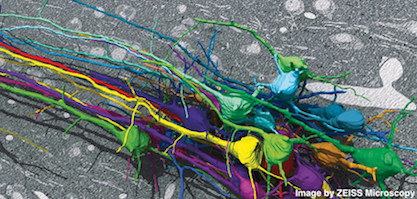easyNet: support for computational modelling for cognitive science
Posted on 6 September 2016
easyNet: support for computational modelling for cognitive science
 By Paul Graham, EPCC and Software Sustainability Institute.
By Paul Graham, EPCC and Software Sustainability Institute.
The Software Sustainability Institute have started a new project working with Colin Davis, Professor of Cognitive Psychology at the University of Bristol, and James Adelman, Associate Professor of Psychology at the University of Warwick, and their software easyNet. This is a computational modelling software package for cognitive science. It is a research tool used to better understand the mechanisms and codes underlying human cognition. By running of simulations of computational models, it is possible to generate predictions that can then be tested in behavioural experiments. So far the main interest has been in understanding reading, but research has also been conducted in speech perception and production, spatial cognition, memory and social cognition.
Computational modelling has played a critical role in the advancement of theory in cognitive science. However, the rate of theoretical progress has been hampered by a number of systemic issues relating to low levels of transparency, reusability, accessibility and reproducibility. The cognitive psychology research community is composed largely of non-modellers who refer to published models in their own empirical work, but do not directly engage with these models. In order to address these problems, easyNet is being developed as a free, general-purpose, platform-independent, extensible, open-source software package, with the aim to make a range of (often very different) computational models available and accessible to all researchers in cognitive psychology.
easyNet is a relatively young project but already has a growing user base, and a recent community survey has indicated a large interest in using such software. The work with the Software Sustainability Institute is geared to ensure that this success continues and grows in the future. This will be achieved via recommendations for improving the software development and testing processes and enhancing the community support aspects of easyNet.
For more information about easyNet, please visit the website.
